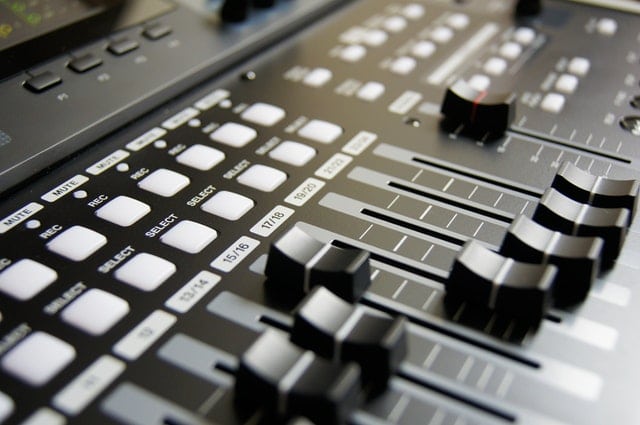Decibels are important when it comes to measuring hearing ability (or lack thereof). Before you can understand the information presented on your audiogram after a hearing exam, it’s important to know what a decibel is and how it is used in an audiologist’s office.
Decibels Measure Sound Intensity

Sound energy travels in waves that can be measured in terms of frequency and amplitude. Frequency refers to the number of sound vibrations per seconds and is measured in Hertz (Hz). Amplitude measure forcefulness of soundwaves and is reported on the decibel (dB) scale. The more amplitude a sound has, the louder it is.
The decibel scale is logarithmic rather than linear. This means that if two sounds have a difference of 10 dB, the louder sound is actually 10x louder than the quieter sound, and a difference of 20 dB means the louder sound is 100x louder than the quieter one.
Decibels and Hearing
The National Institute on Deafness and Other Communication Disorders estimates that around 15 percent of Americans between age 20 and 69 have hearing loss caused by exposure to dangerous noise levels. Any sound over 85 dB can cause permanent damage over time. For reference, here are the decibel outputs of common sounds:
- Normal conversation: 60 dB
- City traffic: 85 dB
- Lawn mower: 90 dB
- Headphones at max volume: 105 dB
- Emergency sirens: 120 dB
- Concerts: 120 dB
- Sporting events: 105-130 dB
- Firearms: 150 dB
Hearing Protection
If you work in a noisy environment like construction site, concert venue or airport, or if you enjoy hobbies that involve loud noises like playing music or shooting firearms, it’s especially important to take measures to protect your hearing. Fortunately, there are many effective strategies for preventing noise induced hearing loss.
Wear Earplugs
Earplugs can be found inexpensively at most drug stores. Foam earplugs are disposable and conform to the shape of the ear, while rubber or silicon earplugs can be washed and reused. Drug store earplugs can be helpful in preventing damage but cannot protect against extremely noisy situation.
Purchase Custom Earmolds
Custom earmolds are recommended for people who are exposed to loud sounds on a regular basis. Ear impressions are taken at the audiologist’s office and special ordered. They can be used to make musician’s plugs and hunter’s plugs, which let in safe sound levels with perfect clarity while blocking unsafe sounds.
For more information about noise induced hearing loss or to schedule an appointment for a hearing test or earmold impressions, call Heuser Hearing Institute today!